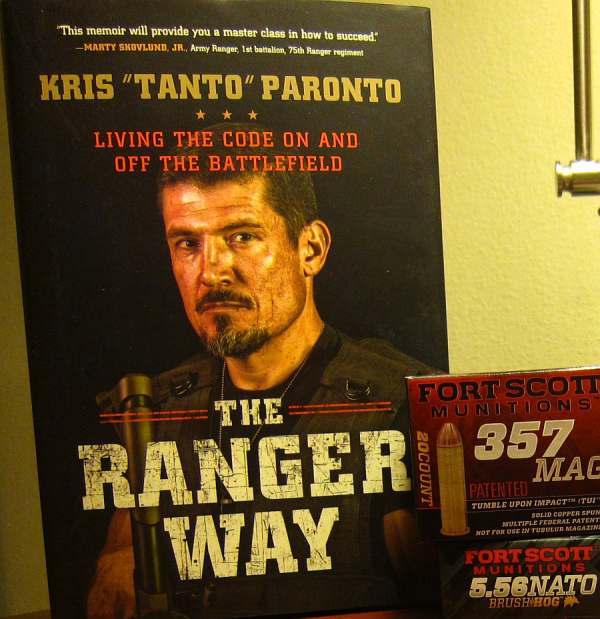
A few weeks ago, I got to visit the president and the owner of Fort Scott Munitions, makers of premium hunting and defense ammo. While there, they told me of the upcoming “Customer Day” celebration and mentioned a training class before that event. It is to be put on by Kris “Tanto” Paronto.
I left their store with information for a feature and with Paronto’s book.
For those, like me, who came in late, Tanto is an Army Ranger from 2nd Battalion 75th Ranger Regiment who became a private security contractor and was involved in the Benghazi operation. A subject of the book and movie, 13 Hours, this event in Libya was a terrorist attack, resulting in the death of a US Ambassador followed by an apparent cover-up of the disaster.
After his Army service, he became a private security contractor and deployed to South America, Central America, the Middle East and North Africa. He was a member of the Global Response Staff, an organization responsible for conducting low profile security in high threat locales.
The Ranger Way isn’t a rehash of 13 Hours, but a personal tale of life: attempts, failures, depressions and victory in spite of it all. It’s a human story of a young man who spontaneously decided to join the Army and become a Ranger – just because. His immediate family had an impact on his decision just as a personal relationship caused him to make some bad choices that led to some lean times.
The Rangers had already reached him though. In Ranger Indoctrination, he accepted the ideals; trials and hardship were the norm, and existed to make one hard and strong. In reading his story, I began to get the feeling he was speaking to me.
He interweaves training and operational tales including the events in those desperate hours in Libya (during which he saw associates fall and realized that the government they were serving wasn’t coming to help) with Ranger principles of conduct.
These principles are recorded in the Ranger Creed and Kris uses them for chapter headings.
Ranger Creed
Recognizing that I volunteered as a Ranger, fully knowing the hazards of my chosen profession, I will always endeavor to uphold the prestige, honor, and high esprit de corps of the Rangers.
Acknowledging the fact that a Ranger is a more elite Soldier who arrives at the cutting edge of battle by land, sea, or air, I accept the fact that as a Ranger my country expects me to move further, faster and fight harder than any other Soldier.
Never shall I fail my comrades. I will always keep myself mentally alert, physically strong and morally straight and I will shoulder more than my share of the task whatever it may be, one-hundred-percent and then some.
Gallantly will I show the world that I am a specially selected and well-trained Soldier. My courtesy to superior officers, neatness of dress and care of equipment shall set the example for others to follow.
Energetically will I meet the enemies of my country. I shall defeat them on the field of battle for I am better trained and will fight with all my might. Surrender is not a Ranger word. I will never leave a fallen comrade to fall into the hands of the enemy and under no circumstances will I ever embarrass my country.
Readily will I display the intestinal fortitude required to fight on to the Ranger objective and complete the mission though I be the lone survivor.
He freely discusses his failures, his thought processes and how it led to depression. It’s not a “Look at me, I’m a hero” thing, it’s a “look at how I screwed up, understand that we all do – and here’s how I got myself back.”
This is from someone who got to the Regiment before getting his tab, then all-but-“chaptering” out of the Army. It took a trip to the bottom, a struggle to get back up, and going through BCT – Army basic again. He went through Ranger Indoctrination once more, got to Ranger school, one of the toughest training environments anywhere.
He achieved his objective. The lessons he took from this struggle are lessons from which we all can learn. It’s an attitude adjustment.
Combat mindset? Sure, the book speaks to that – hence the reason I’m sharing this here. Facing extinction with a short time to get yourself together if you’ve never been tried before is a bad bet. But it’s a basic self-help book too. It’s about understanding the struggles in others then looking at yourself and realizing, “Hey. You’re not as bad as you thought you were. You can do this.”
Learning to deal with life’s trials successfully, learning to “embrace the suck,” all contribute to being able to face a critical incident. Reading this book can help you seek out ways to learn these lessons.
- - Rich Grassi